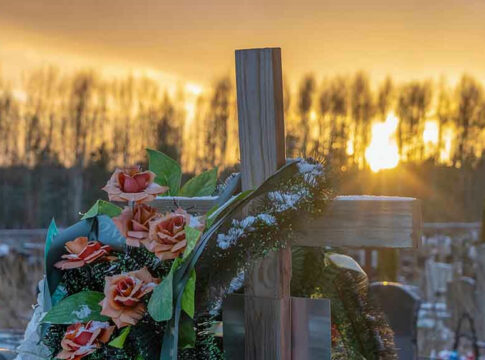As Islamist attacks intensify in Syria, a Melkite-Catholic priest issues a desperate plea for international intervention.
The Plight of Religious Minorities in Syria
In the southern Syrian region of Sweida, a land historically rich in religious diversity, Islamist extremist groups have unleashed a wave of terror targeting the Druze and Christian populations. These attacks are not random acts of violence but calculated efforts to destabilize the region’s long-standing harmony. The Melkite-Catholic Church, with deep roots in Syria, stands firm as a testament to this coexistence but now finds itself at the mercy of ruthless factions.
Father Tony Boutros, a Melkite-Catholic priest, has become a symbol of resilience against this tyranny. In a desperate plea, Father Boutros has called for immediate international protection, urging the U.S., Europe, and the Vatican to intervene. His call echoes the cries of countless others who live in constant fear of abductions and massacres, as Islamist groups continue their barbaric pursuits.
A Cry for Help Amidst Chaos
Father Boutros’s plea is a stark reminder of the ongoing crisis that has plagued Syria since the civil war erupted in 2011. The Druze and Christian communities, long-standing components of Syrian society, now find themselves branded as “minorities” in their own land. This label, Father Boutros argues, undermines their historical presence and contributions to the region.
Heartbreaking, Father Tony Boutros, representative of the Greek Catholic Church in Sweida, Syria, makes an appeal to the international community to save Christians and Druze from an Islamist genocide.
“We Christians and Druze are one. Look at the massacre they are committing… https://t.co/3Xs2DUmzvF pic.twitter.com/05FDQxYL4C
— BeeVan (@BeeVan88) July 18, 2025
Islamist groups, particularly Hayat Tahrir al-Sham, have capitalized on the chaos, spreading fear through kidnappings and extortion. These actions are not just attacks on individuals but assaults on the very fabric of religious coexistence and cultural heritage in Syria.
The International Community’s Role
The call for international intervention is not new, yet the response has been tepid at best. While there is advocacy for minority rights, concrete action remains limited. The lack of decisive intervention emboldens extremist groups, who exploit the power vacuum to further their agenda. Father Boutros’s situation underscores the urgent need for a coordinated response to protect these vulnerable communities.
Despite the dire circumstances, there remains a glimmer of hope. Past interventions, albeit limited, have seen the release of kidnapped clerics. These instances highlight the potential for international influence to mitigate the crisis, but they also emphasize the need for sustained and comprehensive efforts.
The Human Cost of Inaction
The consequences of inaction are dire. The immediate impact is heightened insecurity and displacement, as families are forced to flee their homes to escape the violence. The long-term implications are even more concerning, with potential demographic shifts and the erosion of Syria’s religious diversity.
🚨🇸🇾 “Live with them or die with them.”
Father Tony Boutros, Roman Catholic representative in Suwayda, stands firm amid the violence:
🕊️ “We will not abandon our Druze brothers. We will either live with them — or die with them.” pic.twitter.com/YKoED7elFo
— Militant Tracker 🇶🇦 (@MilitantTracker) July 18, 2025
Economically, these attacks devastate livelihoods, with minority-owned assets often targeted for extortion or seizure. Socially, the breakdown of traditional coexistence fosters sectarian tensions and psychological trauma, threatening to unravel the social fabric of the region. Politically, the attacks undermine local governance and increase calls for international intervention, further destabilizing southern Syria.
Sources:
Holy Land Christian Ecumenical Foundation
Holy Land Christian Ecumenical Foundation


